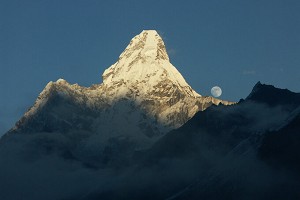
Mount Ararat in eastern Turkey is a dormant volcano 5137m high. A non-technical high altitude plod in an exotic yet accessible location, Ararat is an ideal trekking peak. It has been open for climbing since 2001 but there is a complication - the bitter 30-year conflict between the Turkish state and the Kurdistan Worker's Party (PKK). Today, March 21st, marks the one-year anniversary of a fragile ceasefire. Amy L Beam, a travel agent specialising in Mount Ararat, explains the sticky situation that politics has created on the mountain.
A blood-curdling, staccato scream woke me at 8:30 in the morning at camp two. It came echoing down the mountain from where the last group of climbers was descending from their sunrise summit. Most had already returned and were resting in their tents. The sun was now high. It was going to be a hot July day. The snowline was melting back at the top border of the rock field immediately above our camp.
I could not decipher the word, repeated like an automatic rifle, but there was no mistaking the life or death urgency it conveyed, like an air raid siren... either a warning or a cry for help. Within five seconds everyone had poured out of their tents, zipping their pants up, stumbling into their shoes. What were they shouting? Where was it coming from? Was someone injured?
Other voices from above took up the alarm. The call cresendoed in volume as it was relayed down the mountainside. Rock! Rock! Rock! All eyes turned upward, scanning the vast mountain. Where was it heading? Which way should we flee?
Then everyone began pointing. The Iranian filmmaker shouldered his camera and shouted YES!
"As the season advances the outhouse becomes gruesome, but that's not the real sh*t on Mount Ararat"
Far above, I spotted it tumbling down along the edge of the stream created from the melting ice cap. It bounced along, gaining momentum and height. With each bounce, the two-foot boulder rebounded higher until it was flying five feet high like one of those computer-simulated games where meteors are raining down on dinosaurs. It smashed right where I had brushed my teeth at the stream last night in the dark. Passing us, it catapulted over the side of the cliff and disappeared into the canyon. We could hear a mini-rock slide that it triggered.
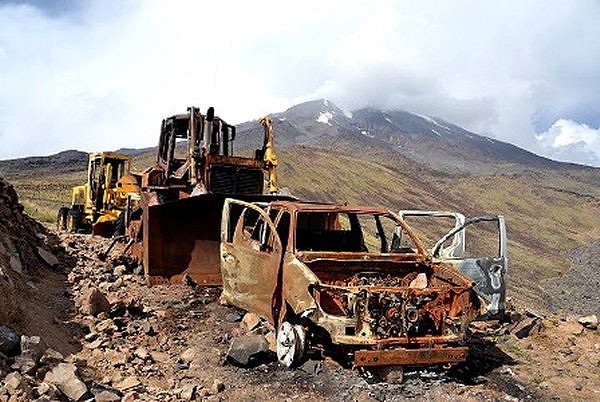
My heart was palpitating. I was thinking the inevitable "what if" thoughts of my mortality. I drew in three deep breaths to quiet my internal trembling. The filmmaker had captured that once-in-a-lifetime moment on video for his documentary. Except the flaw with his thinking is this: falling rocks are not an occasional occurrence on Mount Ararat. They are a daily occurrence. Most of them come from the top rim of Red Canyon and cascade into the canyon like a stone waterfall, collecting more rocks along the way and raising a cloud of debris.
As you finish your climb from camp one to camp two, the trail skirts the edge of the canyon. You will often see a rock slide. Less frequent, but also common, are rocks falling from the rock field above camp two over which one must climb to the summit in the dark. These rocks normally follow the course of the stream at the far edge of camp two.
Climbers should heed the warning not to cross the stream to go to the toilet behind the six-foot-high wall of rocks. Not only is it dangerous because of falling rocks, but also because behind that rock wall the snow has turned to a slick ice field on a steep incline. You must do your squat one-handed while holding onto a rock or risk sliding into the canyon, twenty feet away, to certain death.
In a normal winter, after the first snow in late September or October, the ice freezes the rocks into place. In March and April the snow begins to melt. By May the ice is thawing and rock slides are frequent all over the mountain. We do not suggest climbing Ararat in May.
So where should one go to the toilet? Face the canyon, turn around, and walk up to the rocks above the tents. Wear your boots. The only clearings at camp two are for the tents. The entire mountainside is big rocks and boulders which is why it is called the rock pile. It is slow-going and easy to twist your ankle.
Pick your rock. Take your pocket pack of tissues. In the beginning I had arguments with my Kurdish partners over providing toilet paper, but finally understand the local culture. One should never be caught without tissues. As my partner explained, 'It would be a shame for a woman to have to ask a man for toilet paper. What stupid woman would not carry her own tissues?'
Only a foreign woman, I suppose. He won this disagreement. It is easier for me to prepare my climbers for the realities of Ararat, than to change local customs. Buy your tissues from one of dozens of six-year-old boys selling them in town for one lira. It is a nice form of charity which discourages their "money, money, money" begging.
Imagine if 3000 people take their dump in one spot without benefit of water. A popular trekking peak, Mount Ararat takes quite a bad rap for not having toilets. One climber's review on Trip Advisor states:
'High camp is a bit of a shock, it sits on a narrow ridge about 1000 metres below the summit. Space is even at more of a premium up here but by far the biggest and most disgusting problem with high camp is that in all senses of the meaning it is a "s**t hole". As there are no toilets, there is human waste everywhere and you have to be very careful when walking about not to step in and drag it in to your tent. This is something everyone seemed to be very unhappy about and it needs to be sorted out before Ararat becomes even more popular and the situation gets worse.'
I do feel he over-dramatizes to a degree. I admire people for making the summit, but if a toilet is going to be a deal-breaker, you might think about climbing Kilimanjaro instead. So now we come to the crux of the issue: Why are there no toilets on Mount Ararat? Allow me to explain about the real s**t on the mountain.
Back in 2010 there was a government plan to build two buildings with 25 beds, toilets, and showers at both the lower and upper camp, but when excavation started, someone burned the backhoe and car on the first day, and work was halted. Why might people be angry enough to do that?
"Military action is timed not to clash with summer climbing season. Neither government nor PKK wishes to interfere with tourists who bring the dollars that put food on Kurds' tables"
International observers, including the European Court of Human Rights (ECHR), have condemned Turkey's human rights record towards its Kurdish minority, which makes up approximately 22% of the population (estimates vary) and has been subjected to decades of discrimination.
Since it was established in 1984, the Kurdistan Worker's Party (PKK) has been fighting the Turkish state, which denies the constitutional existence of Kurds as an ethnic minority and had outlawed the Kurdish language until 1991. Only in the last year, after a 68-day Kurdish prison hunger strike, has the use of the Kurdish language been permitted in courts and government offices. A large percentage of Turkey's Kurdish population openly sympathizes with the PKK and its imprisoned leader, Abdullah Öcalan.
The Kurds are demanding constitutional recognition as an ethnic minority, lifting of the ban on Kurdish-language education in public schools, and changes to Turkey's the anti-terrorism laws under which thousands of activists, journalists, lawyers, children who throw stones at police tanks, elected officials and ordinary citizens are held as political prisoners accused of "associating with a terrorist organization" or "spreading propaganda for a terrorist organization."
For the second year in a row, a census conducted by the Committee to Protect Journalists showed that in 2013, Turkey jailed more journalists than any other country.
When young Kurds join the PKK, it is said they "go to the mountains". Generally, this refers to the headquarters in the Qandil Mountains between Iraq and Turkey, but there are also Kurdish guerillas on Mount Ararat. Numbers vary from 30 to 600 depending on the season and the political situation. To Kurds they are freedom fighters, and every family knows someone who has either gone to the mountains, gone to prison, or gone to her or his grave.
Military actions against the PKK are generally scheduled to take place right before and right after the summer climbing season. The Jandarma calls each guide before any military action to ensure that the last climber is off the mountain (a good reason not to sneak up alone, unguided). Neither government nor PKK wishes to interfere with tourists who bring the dollars that put food on Kurds' tables. Everyone loves and protects the tourists. The PKK stays above the climbers' starting point at 2250 meters; the army stays below the starting point. PKK policy is that no roads will be cut on Mount Ararat. This prevents the army from driving jeeps and tanks onto the mountain in pursuit of the PKK.
Mount Ararat is solid rock. Not even a weed grows at the upper camp. In order to build a shelter and proper toilets on the mountain at camps one and two, it is necessary to take heavy equipment up and dig through the rock (for which, or course, a road would have to be cut). In spite of annual requests to the PKK to allow the construction of proper toilets, so far this is not in their game plan and heavy equipment brought onto the mountain has been destroyed (the PKK destroy scores of army and contractor vehicles every year in Turkey).
On March 15, Turkey's President Gul told the Danish newspaper Politiken 'I'm brave enough to admit past mistakes.' Gul predicts that if the state gives the Kurds 'democratic rights,' there will be no reason for guerrillas of the PKK to 'fight anymore'. 'The Kurdish question is about the democratic level. If you raise it, then the problems will fix themselves,' he told Politiken.
If the Turkish government can now take bold steps and both sides work together toward achieving Kurdish rights, then the year-old peace might last and full democracy be achieved for all citizens of all ethnic groups in Turkey.
Then maybe one day there will be toilets on Mount Ararat.
Who's writing?
Dr. Amy L. Beam specialized in Information Technology before discovering the beauty of eastern Turkey and the hospitality of Kurdish people. Since 2007, Beam has been organizing tours for groups and individuals to climb Mount Ararat (Agri Dagi), the highest mountain in Turkey at 5137m. Mount Ararat is open and safe to climb in 2014, she says.
For more info on guided trips see Amy's website Mount Ararat Trek or contact her by email

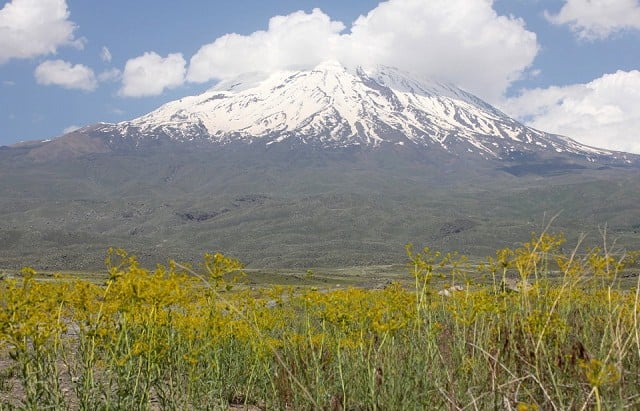
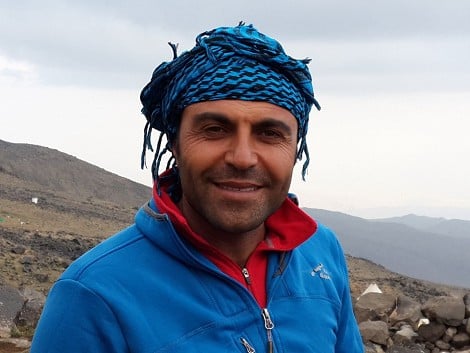
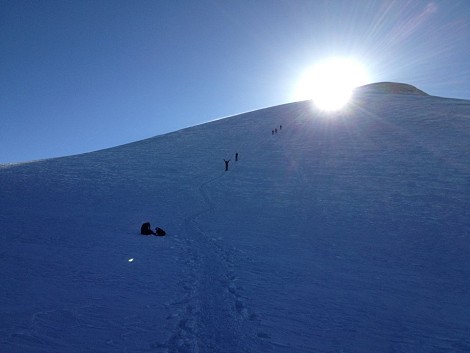
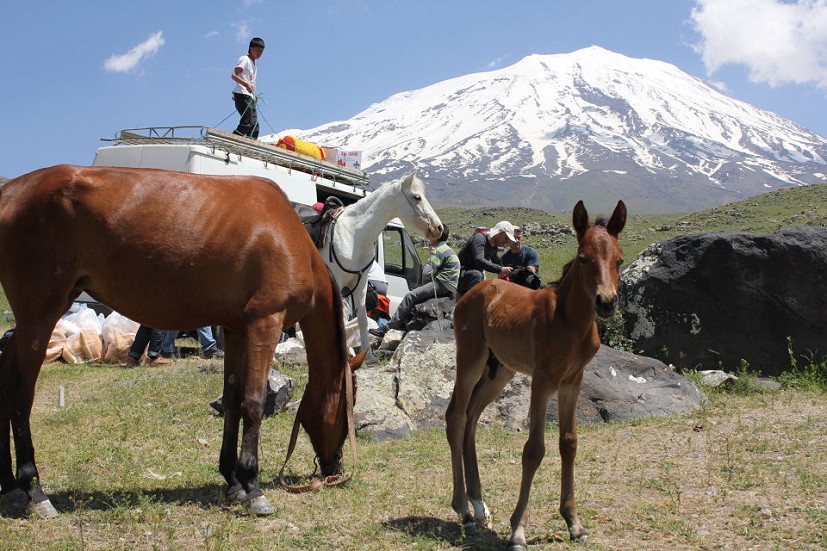
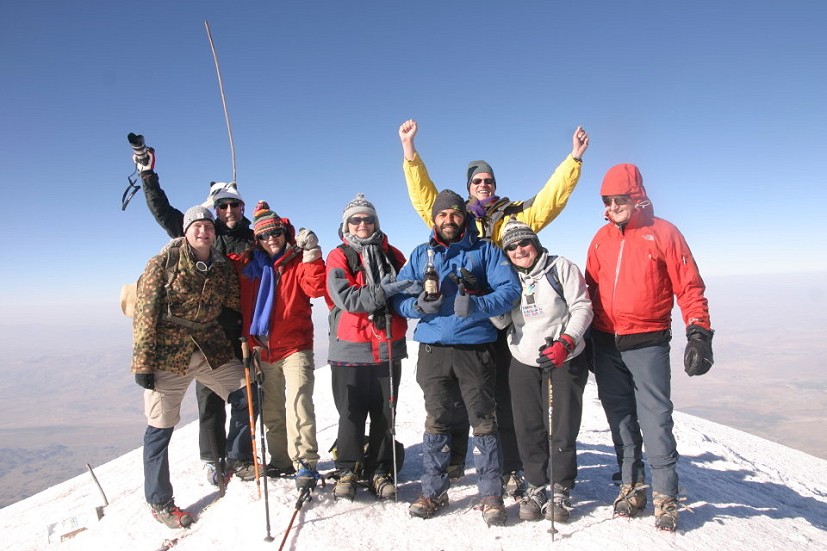
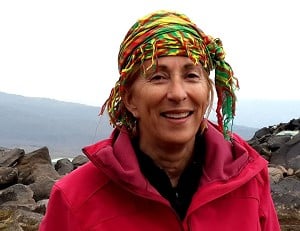
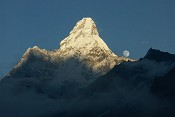
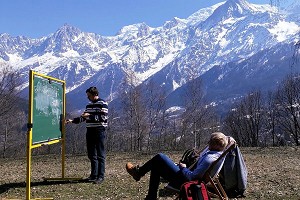
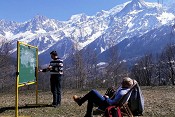
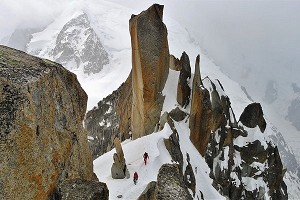
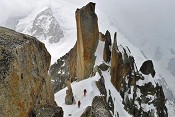



Comments